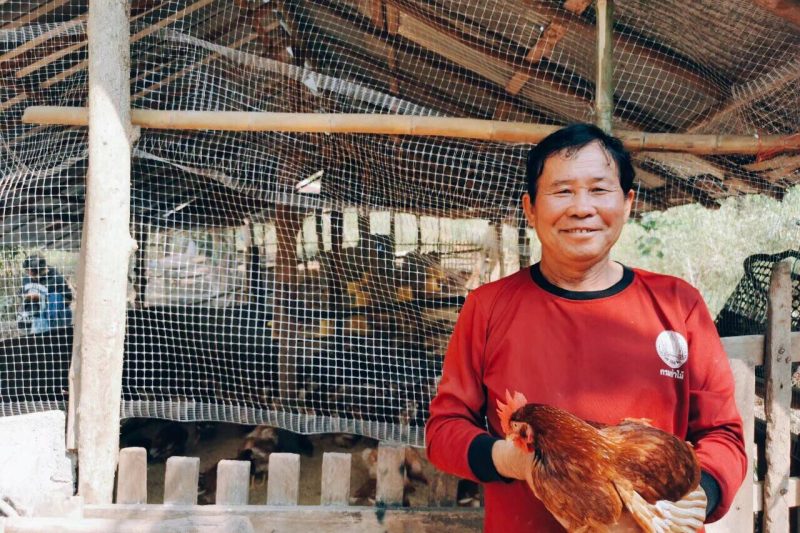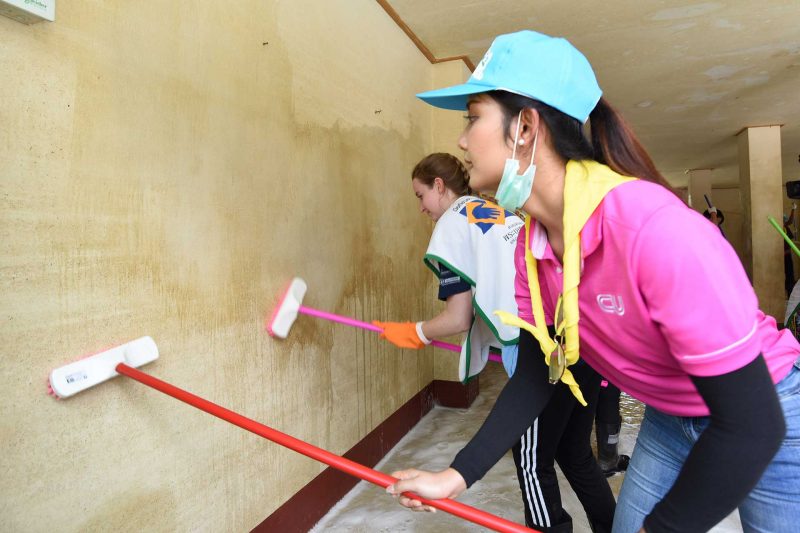Pharmacists nationwide being recognised for the important role they play in the healthcare system
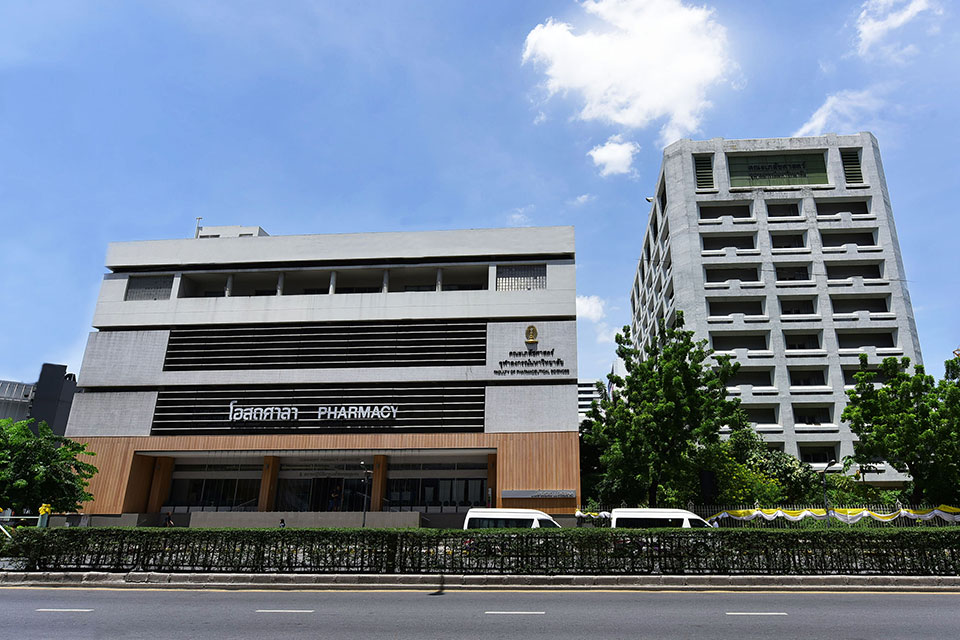
When they feel sick, one in four Thai people do not go to hospital or clinic, but choose instead to drop by a drugstore and consult a pharmacist, according to a study by the National Health Security Office (NHSO). Given that there are more than 17,000 drugstores nationwide, the NHSO has seen the potential for using this extensive network and increasing the role of pharmacists to improve healthcare. The result was the “Friendly Community Pharmacy” project launched in 2018.
As one of the pilot drugstores in the project, the Community Pharmacy Laboratory or Osotsala in Thai, at the Chulalongkorn University Faculty of Pharmaceutical Science has been a model community pharmacy since its inception in 1986 and accreditation by the Pharmacy Council of Thailand.
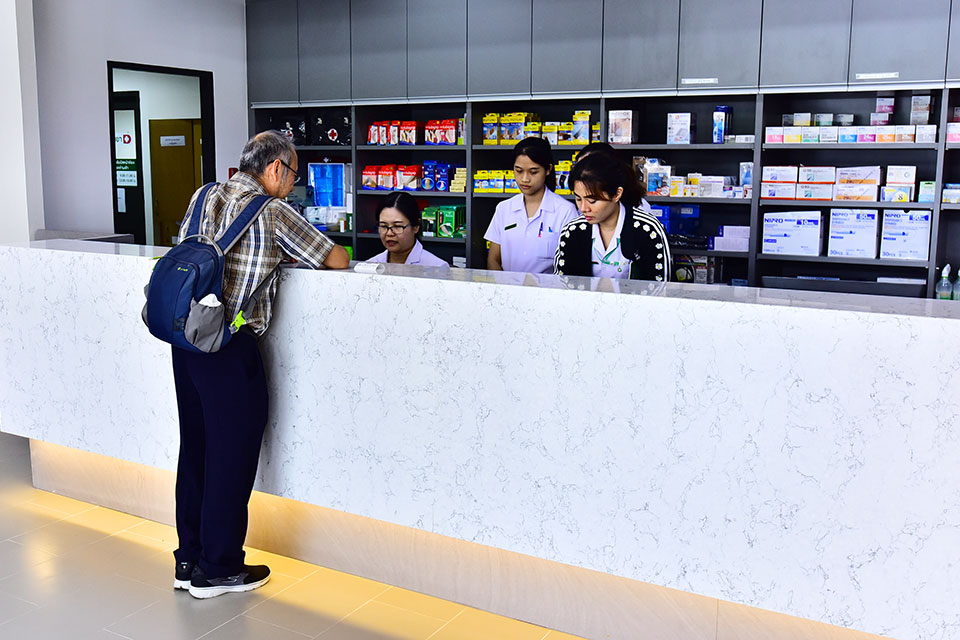
Community pharmacists can play a very important role in public healthcare as they are the health professionals most accessible to the public. Pharmacist Pentipa Kaewketthong, manager of the Community Pharmacy Laboratory, says that when a patient walks into the retail pharmacy outlet run by faculty members and students, a pharmacist will conduct an inquiry about his or her illness, medical history and medication use. This serves not only as a checkup but also can help screen for risk assessment of chronic diseases so that appropriate advice can be provided to help patients understand their health condition.
Having such simple tasks performed by a community pharmacist can help to prevent various health risks, especially non-communicable chronic diseases. As the saying goes. “Prevention is the best medicine.” Osotsala pharmacists are also trained and tasked to support patients to lead a healthy lifestyle, which includes eating nutritious food, exercising more often and stopping smoking.
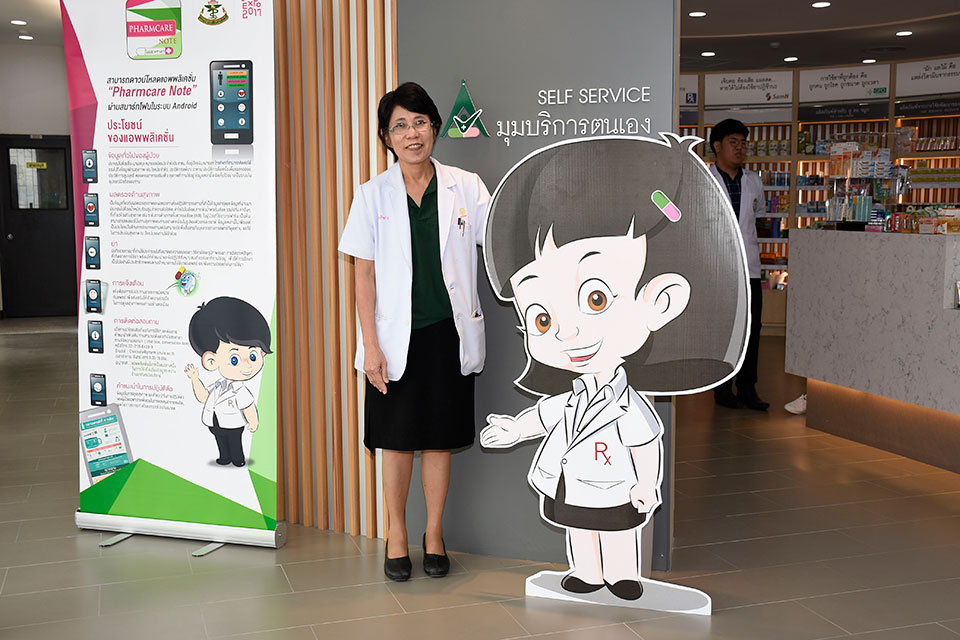
Osotsala has offered a smoking cessation program since 2015 by providing free service to help smokers change their behavior to quit. Another preventive service is risk screening for diabetes and high blood pressure, consisting of a primary interview and follow-up confirmation using a mobile blood glucose meter.
If an individual is found to have a medium or high risk of diabetes, the pharmacist will advise on lifestyle and behavior changes to reduce risk escalation, and follow up with monitoring. A referral will be given for high-risk cases to their respective providers under the national healthcare program.
Education in the safe use of medications is another priority Osotsala focuses on through its counseling service. This is important for reducing preventable harm related to improper use of medication including irregular adherence, discontinuation, overuse, self-medication and drug interactions, especially with self-prescribed herbal medicine.
As part of the NHSO’s Friendly Community Pharmacy project, Osotsala is also engaged in home healthcare visits in Pathumwan and Lumpini districts near the university. Every week, Osotsala pharmacists together with a multi-disciplinary team from both district health offices will visit patients in their homes to educate, monitor and follow up on the safe use of medication and provide other counseling needs. The result of this collaborative fieldwork has been positive change in patients’ behaviors, including improved medication use and reduction in other health-risk practices.
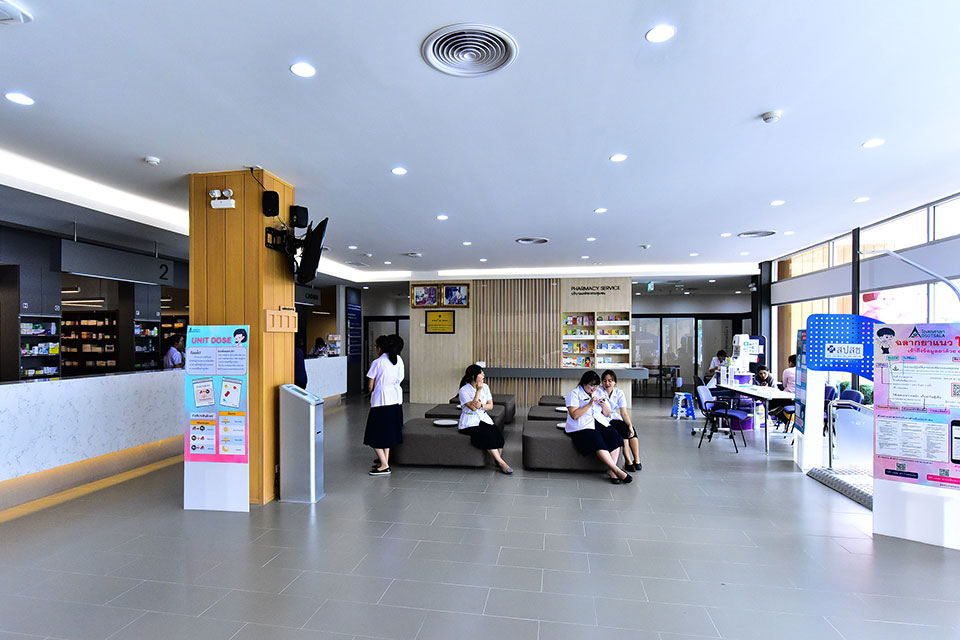
For more information, please visit https://www.chula.ac.th/en/cu-services/medical-services/osotsala-pharmacy/
Previous:
Next:
Others
Organic agriculture for health and wealth
Community-based certification opens new doors for farmers in Nan
Help from the Heart
Chulalongkorn University volunteers bring their care and skills to flood-ravaged Ubon Ratchathani

